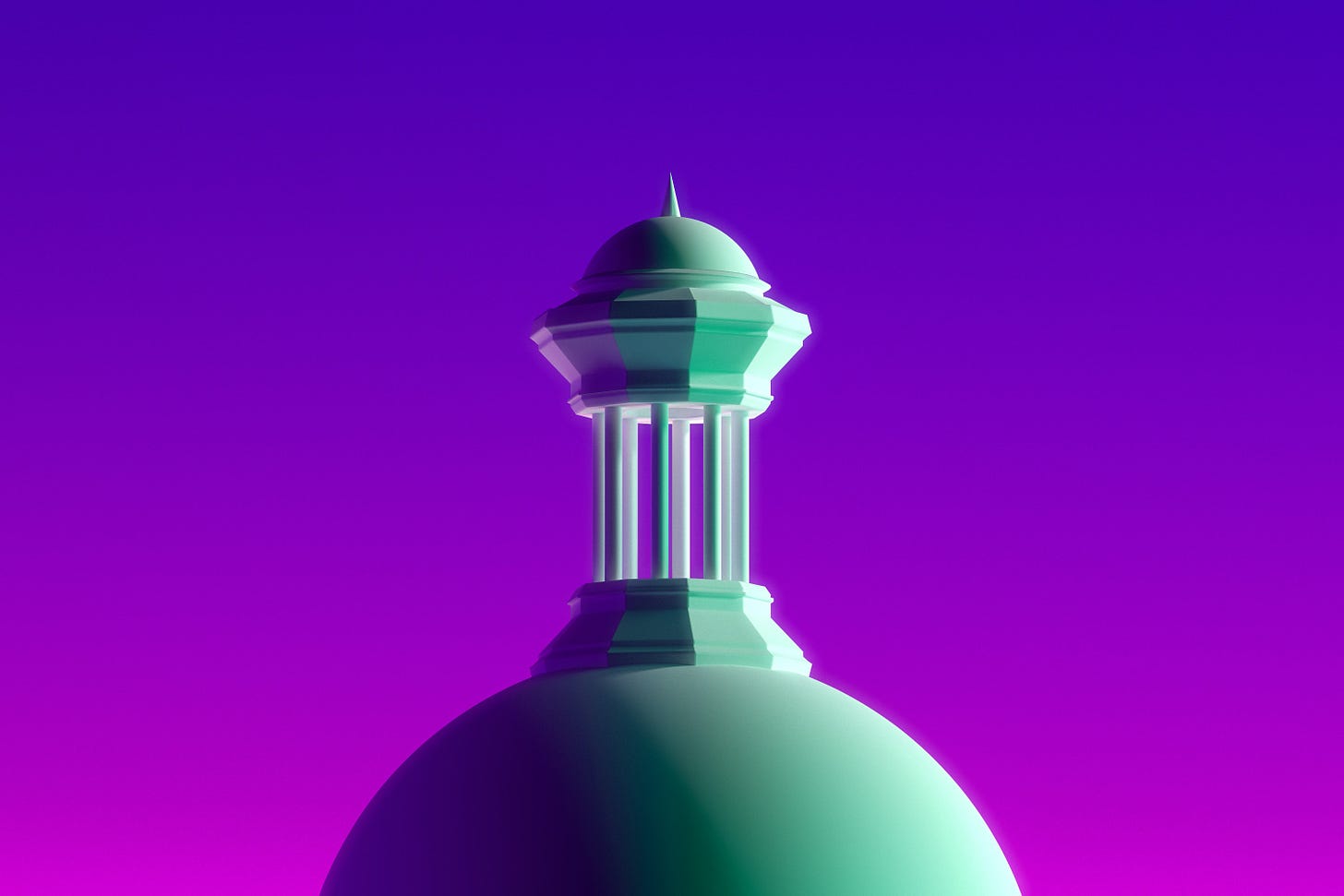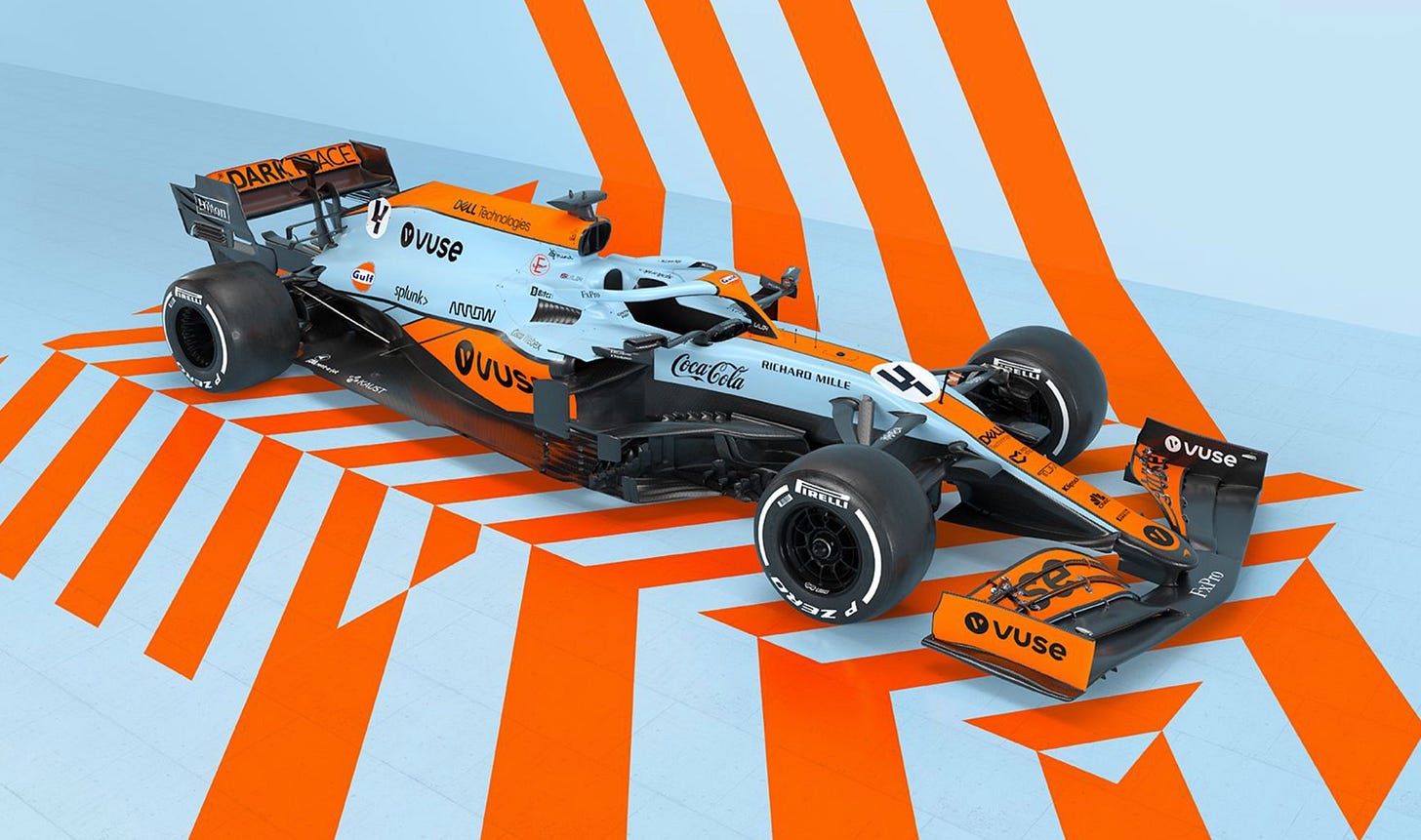NFTs, trading cards and the future of sport engagement.
Idée Fixe Interlude #25
Thank you for being here. You are receiving this email because you subscribed to Idée Fixe - the newsletter for curious minds. If you are new to Idée Fixe, welcome.
I’m Toni Cowan-Brown and each week I share with you insights from tech, politics, and internet culture that matter and dominate our minds. I also have a section on the latest in the F1 2020 season. And once in a while, I’ll dig into a specific idea that is particularly top of mind. 🧠
First up.
🙌 Thank you for your warm reception to last week’s post on the content creator loop - creator and consumer fatigue. I was bracing for a handful of unsubscribes and instead, the opposite happened - many of you liked my piece, shared it, and wrote to me to share your own struggles. It sounds like we are all in some way, either trying to keep up with all the content or continuously trying to produce content we are proud of. And we can all agree it’s exhausting.
🎙 Where the fuck's my fucking train? (Unapologetic Women w/ Sorcha Rochford)
When was the last time you used public transport? In a pre-Covid era, if you live in Europe, this is most likely an odd question to ask as it probably wasn't that long ago. In America, however, the car is still king.
Regardless of where we live, globally the question still stands where do our comfort levels lie with utilizing public transit in our respective cities. And has our relationship to public transit changed as many of us opted to leave the city behind? When the pandemic first hit there was a fear of a mass exodus of cities. While there were many people who left cities across the globe to be with family or have more space. This exodus is now eroding and we are seeing people move back into cities.
What I’m reading.
🥳 Can ClubHouse keep the party going? 🧠 Feeding Hate With Video: A Former Alt-Right YouTuber Explains His Methods. 📱 How TikTok Is Rewriting the World. Whether you like it or not, use it or are still ignoring it; it’s going to change the way social platforms work. ⏳ The value of knowledge. 💊 Prescription drug commercials - a very American experience. 🎮 Gaming Influencers Are the Future of Esports. 🏢 The Future of Offices When Workers Have a Choice.
Politics 🗳️
Trump, censorship, deplatforming and algorithms - just some of my most used words this past year.
Two interesting pieces on what to do with the likes of Donald Trump on social platforms. I think we can agree that it’s been nice sans Trump’s minute by minute ALL CAPS Twitter rants. As a reminder, Trump found himself banned from both Twitter and Facebook last year, and he recently decided to start what can only be described as a poor attempt at a blog. And most recently, the Oversight Board reviewed Facebook's 2021 decision to indefinitely suspend Donald Trump, and they upheld the initial decision.
Both of the below pieces argue that the problem isn’t Trump per se and the solution isn’t deplatforming him, but rather the issue and the solution lie within the platform’s algorithm. There is certainly a case to be made here that instead of playing a game of whack-a-mole by censoring content and deplatforming people when it’s too late, we ought to solve the problem at its core - i.e. maybe rethink the software itself.
But content moderation is a tricky business. This is especially true on Facebook where billions of pieces of content are posted every day. In a lot of cases, it is difficult to determine what content is truly harmful. No matter what you do, someone is unhappy. And it's a distraction from Facebook's core business of selling ads. [read the full piece here]
History has shown us that censorship and deplatforming problematic people (also problematic according to who?) isn’t really a viable or even successful solution. I, like many, do not feel comfortable with the idea that such decisions - especially when it pertains to democratically elected heads of state - should be in the hands of large companies like Facebook and Twitter. And yet, this is very much the situation we are currently in. They are having to step in where regulation has yet to catch up.
The ability to switch contexts with little friction on Twitter is part of what can make the entire experience feel spontaneous and exciting. It’s how you get celebrities interacting with random nerds. Fun! It’s also how a lot of vile harassment happens. Perhaps the most common form though is what happened to Hunt. Perhaps it doesn’t fit everyone’s definition of harassment, but it’s also categorically a deeply unpleasant experience. [read the full piece here]
Technology 📱
What's All the Fuss About NBA Top Shot? (SI, March 2021)
I mostly spend my days thinking and talking about tech, politics and internet culture. And yet there are a few topics that I don’t write a lot about, mostly because I’m still - sometimes years later - wrapping my head around it. Crypto is high up there on the list of things that I’m intrigued by but am fully aware I know very little about it. NFTs are a close second.
NFTs are still early, and will evolve. Their utility will increase as digital experiences are built around them, including marketplaces, social networks, showcases, games, and virtual worlds. It’s also likely that other consumer-facing crypto products emerge that pair with NFTs. Modern video games like Fortnite contain sophisticated economies that mix fungible tokens like V-Bucks with NFTs/virtual goods like skins. Someday every internet community might have its own micro-economy, including NFTs and fungible tokens that users can use, own, and collect. [read full piece here]
Recently I went down a rabbit hole - as one does - reading about NFTs (Non-Fungible Tokens), and stumbled on NBA Top Shot. In its simplest form, NBA Top Shot is an online forum and platform for trading virtual NBA cards. More completely it's a partnership between the NBA and Dapper Labs, a “blockchain company that focuses on highly trafficked marketplaces”.
The way this experience works - because really it’s neither just a product nor a forum - is pretty simple. Fans buy and sell short-form video segments that are called “moments” and these “moments” exist solely on the Blockchain which they can then trade.
The more I think about it, the more I want such a trading platform and experience for F1, which would allow F1 fans to collect and trade old and new F1 “moments”. A new sort of memorabilia if you will. Now is the time to capitalise on all the new F1 fans that are tech-savvy, social-first and younger.
(Pop) Culture 🍿
Subcultures are a core part of making any sport popular
And while we are on the topic of sports and F1, I find it an interesting exercise to think about what makes some sports more popular than others. In other words, why are some sports really sticky?
Although Formula 1 possesses both the cool factor and the longevity (it is currently celebrating its 71th season). It doesn't quite yet possess the other components that make it a popular sport - accessibility to the many and a thriving subculture.
Which got me thinking - does F1 have thriving subcultures to speak of? Don't get me wrong there are plenty of driver and team fan bases and there are some popular forums and discussion boards, but nothing that I would describe as a thriving subculture that makes you say - I want to be a part of that, whatever that is.
The most 'successful' subcultures pride themselves in being the 'outcast', on the fringe of what is expected, breaking the mold so to say... One thing they are not is part of the mainstream culture. F1 is certainly a mold. It's literally in the name - ‘Formula’ comes from the set of rules that the participating cars and drivers must follow. One thing that F1 does have is a lot of rules, regulations, and norms (and for very good reasons - it's one hell of a dangerous sport, even with all of these regulations in place).
This new generation of drivers is somewhat at odds with the strictness of F1 and the FIA (the governing body of the sport). Both of which have been around for a while. Although much has evolved since then, a lot within the sport has stayed the same. The sense of community created by subcultures has the power of binding fans together.
This sense of community was brought forward during the 2020 season, where F1 fans had to connect primarily online both with each other and with the sport itself. It’s going to be interesting to see how F1 embraces these subcultures rather than be at odds with them. Many drivers streamed on Twitch, fans created online forums, and by the sounds of things a lot of these habits have spilled over into 2021. [full piece here]
Formula One 🏎
McLaren Racing and Gulf Oil International Unveil Limited Edition Monaco Grand Prix Livery (McLaren Website, 16 May 2021)
This unveiling comes just one week ahead of the iconic and highly anticipated Monaco GP. The retro livery is a nice touch and a phenomenal marketing campaign for both brands. During an F1 season, teams can’t really radically change their livery so this type of full transformation is certainly an exception rather than the rule.
“Additionally, Lando and Daniel will wear race helmets with bespoke retro designs, especially created for the event, to be raffled for the team’s mental health charity partner, Mind.”
This charitable element adds a nice touch to the uniqueness of the livery, the kit, the suit and the helmet. It’s also very much in line with Lando’s openness about his own mental health struggles.
We need to talk about cancel culture (NYT event, YouTube)
Kara Swisher, host of NYT Opinion’s “Sway”; Jane Coaston, host of “The Argument”; Ezra Klein, host of “The Ezra Klein Show,” and Farhad Manjoo, Times Opinion columnist, team up to debate one of today’s thorniest topics — from the societal pros and cons of cancellation to what role (if any) big tech should play in this cultural phenomenon.
Some Kind of Heaven (Hulu)
Behind the gates of a palm tree-lined fantasyland, four residents of America’s largest retirement community – The Villages, FL – strive to find happiness and meaning.
Often referred to as “Disneyland for seniors”, this Florida retirement community makes for a fun documentary. One that is both educational and entertaining.










